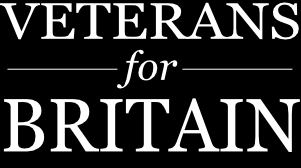
How The Exit Deals Are A Step Too Far For Intelligence Sharing & Defence
7 Key Points on the Defence Risk
- Defence industrial: the UK could decide where defence contracts would go e.g. guarantee building the £1bn Fleet Solid Support ships (Royal Fleet Auxiliary logistic support ships) in the UK if Mrs May wasn't signing up for EU defence directive compliance which obliges the UK to put all defence contracts out to tender in the EU. Meanwhile the deal does not firewall UK defence industries over the long term, meaning an enduring risk to UK build capability. Notably, the specific safeguard that has been added to the text is understood to be largely down to our lobbying.
- Defence policy: Mrs May has been preparing to stay in new EU defence industrial, political and budgetary schemes which by definition require attachment to EU defence policy.
- Defence treaty sidelines MPs: the Withdrawal Agreement says the UK will stay in the above defence schemes via a separate arrangement after Brexit Day. This treaty after 29 March would be by executive powers, so MPs won't be able to touch it. Even if the Withdrawal Agreement 'springboard' is defeated, ministers can still sign the defence treaty especially since Parliament and public have not noticed its risks.
- Financial commitment to EU defence schemes: non-EU participation in EU defence schemes requires payments. Also linked to European Investment Bank membership. Participant states' payments are used an incentive to greater involvement and therefore participation under EU authority.
- Intelligence risk: EU Commission slides and European External Action Service statements show that the EU expects the UK as a future participant in EU defence policy (Common Security and Defence Policy, CSDP) to commit to the intelligence requirements of CSDP members. A combination of this kind of structural relationship and the rapid ongoing development of the EU's Single Intelligence Analysis Capacity (SIAC) as EU intelligence hub, when considered together, brings an increasing risk to the UK's Special Relationship with the US, particularly the UK role in the exclusive Five Eyes network.
- MPs were sidelined while the UK joined: MPs have never voted on the UK joining EU defence schemes, yet defence industry involvement has been established, making withdrawal incrementally more difficult. When UK joined, ministers breached Parliamentary rules governing the scrutiny of EU defence arrangements. We would expect a 'temporary' CSDP-replacement treaty on or after 29 March to facilitate the growing UK industrial attachment to EU schemes, which would make it less easy to escape a longer, deeper political attachment later.
- NATO duplication: 'EU Defence' already has the potential to duplicate or detract from NATO in 20 separate areas just from the starting list, from defence research to airlift, military planning and the strategy teams triggering and coordinating an emergency response. 'Defence decision-making autonomy from NATO' as a concept is stated in EU Council agreements, while 'EU defence sovereignty' and 'strategic autonomy' are frequently expressed. Intention is to be an autonomous semi-detached bloc within NATO, akin to any current non-EU member. EU Defence is growing rapidly in finance, function and personnel. There are two topics here which US counterparts will find particularly alarming: the threat to Five Eyes and US exclusion from the defence industrial schemes. Non-EU involvement in EU schemes carries onerous obligations. The other objective was preventing NATO duplication. Everything in EU Defence could have been done via NATO.
There are two topics here which US counterparts will find particularly alarming: the threat to Five Eyes and US exclusion from the defence industrial schemes. Non-EU involvement in EU schemes carries onerous obligations. The other objective was preventing NATO duplication. Everything in EU Defence could have been done via NATO.
Copyright Notice: Unless explicitly stated otherwise, all rights including those in copyright of the documents and content of this website are owned by or controlled for these purposes by Jonathon Riley (Generalship Ltd). Except as otherwise expressly permitted under copyright law or Generalship Ltd's Terms of Use, the aforementioned content may not be copied, reproduced, republished, downloaded, posted, broadcast or transmitted in any way without first obtaining written permission of the copyright owner.
